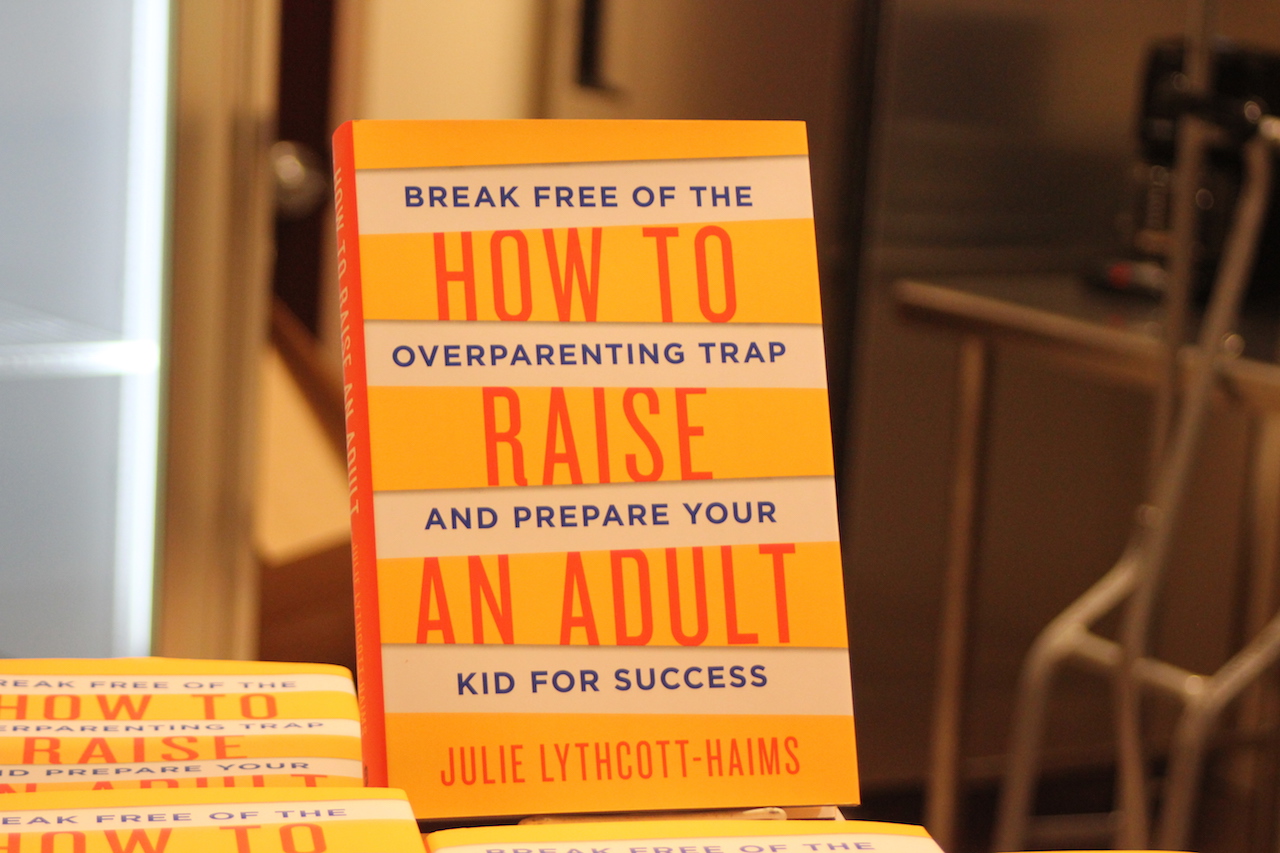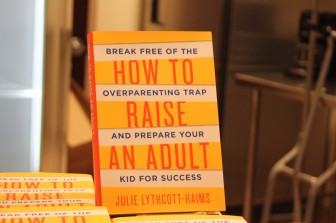
In today’s world, being an involved parent is often viewed in a positive light. Because of rigorous academic standards and increasingly competitive college admission requirements, many parents are encouraged to give their children a leg up to help them succeed in situations that they struggle with on their own. Because of these strenuous situations, many parents today are significantly more controlling of their children than those of the past, often assisting their kids by organizing their schedules for them, hiring tutors and counselors for them, and even deciding their children’s college lists instead of letting them choose on their own.
Former freshman Dean of Students at Stanford Julie Lythcott-Haims’s book “Raising an Adult” presents the concern that overparenting has become prevalent in schools surrounding the Silicon Valley. In the book, Lythcott-Haims discusses the well-intentioned but over-involved parenting she has witnessed both in her experience at Stanford and as a mother of two herself.
In Lythcott-Haims’s book, she writes, “We want so badly to help [our children] by shepherding them from milestone to milestone and by shielding them from failure and pain. But over helping causes harm, it can leave young adults without the strengths of skill, will, and character that are needed to know themselves and to craft a life.”
On Wednesday, Nov. 11, Lythcott-Haims presented the main ideas of her book to a theater full of parents at the San Mateo Performing Arts Center and held a book signing afterward.
Amy King, a main organizer of this event, says, “The event was the most successful, well-attended event put on by the Peninsula Parents Speaker Series with more than 910 attendees. PPSS is a consortium of parent-teacher organization board members from all high schools in the San Mateo Union High School District.”
As Lythcott-Haims directed this event towards parents, parents from across the Bay Area attended the event. Some of the attendees were parents from Aragon.
Aragon parent Nicole Lynn learned from Lythcott-Haims’s presentation that academics, while important, should not be the only attribute that parents teach. She says, “My favorite part of the speech was what [Lythcott-Haims] said about parents enforcing chores. A lot of teenagers today don’t know how to do basic things like cooking or helping out around the house. Academics are important, but more parents need to teach their kids basic life skills.”
One of Lythcott-Haims’s main points during her presentation centered around the mounting challenges of the college application process. She cautioned parents against attempting to “engineer” their kids’ childhoods around classes and activities that would look good for college. She warns that this hinders independence. Instead, she says, “Parents should allow their children to think for themselves so they can become successful adults in the future.”
Lynn notices the competitive environment at Aragon but believes that bearing further stress on her children is not worth the sacrifices, saying, “A lot of the time at Aragon, they really push kids to go to college, which is great. But they need to remember that college isn’t the only option. Expecting kids to meet these ridiculous standards for college only results in sicker children, and I see a lot of kids who are unhappy. I’m very happy with my kids going to smaller schools, and I would never force my kids to do things that make them unhappy.”
Aragon junior Dakota Severson believes that parents should create a balance in their approach to supporting and encouraging children. He adds, “The best way [parents can] support high schoolers would not be to punish them for their grades but to communicate with them on a daily basis on schoolwork and supply them with the right materials for them to succeed, [such as a] tutor.”
Oftentimes, children experience the stress of applying to college long before the college application begins. Lythcott-Haims advises parents not to add to their children’s stress, especially because students already experience pressure from their teachers and peers.
Lythcott-Haims also addressed how overparenting not only affects high school students, but it also harms younger children as well.
Sandra Barrolaza, a parent of two Burlingame Intermediate School and Lincoln Elementary School students, agrees with Haim’s observations, saying, “Even though my kids are still in elementary school, I already see the helicopter parenting. So many parents overschedule their kids. My daughter recently asked me if she could join the school play, but I said no for now because she already has too many things going on.”

Barrolaza recognizes Lythcott-Haims’s ability to reach and relate to parents from across the Bay Area as influential. She says, “I think the reason such a large group of people showed up [to the event] today is because this is a touchy subject here in the Bay Area. Parents see overcontrolling parents around them all the time, and they feel like they have to push their kids too just to compete with everyone else. But that sacrifices their kids’ childhoods and their happiness. I think there are ways to raise happy, successful kids without doing everything for them and controlling them, and it’s nice to see that other parents feel this way too.”
King concludes, “The goal of the event was to offer parenting advice on raising independent kids. It should be our goal, as parents, to raise kids who find their own passion, not just what parents tell them they’re good at, and develop their own sense of self, rather than have parents lead them through a check-listed childhood.”



